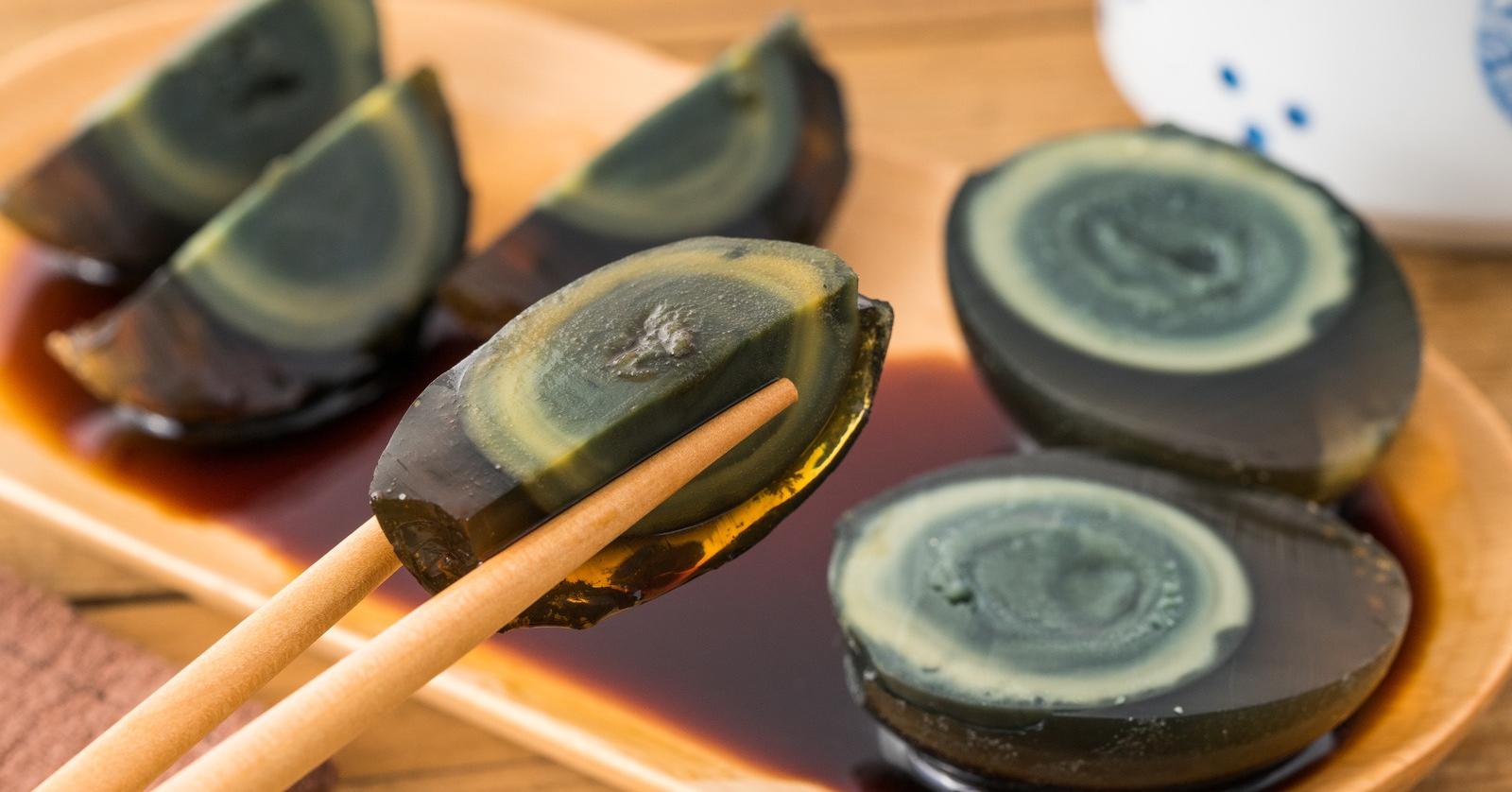Are you curious to know what is a century egg? You have come to the right place as I am going to tell you everything about a century egg in a very simple explanation. Without further discussion let’s begin to know what is a century egg?
The Century Egg, known for its unique appearance and distinctive flavor, is a delicacy that has intrigued culinary enthusiasts for centuries. This article delves into the intriguing world of the Century Egg, unraveling its history, preparation, taste, and dispelling common myths associated with this gastronomic marvel.
What Is A Century Egg?
A Century Egg, also known as a preserved egg or hundred-year-old egg, is a Chinese delicacy renowned for its unconventional preparation method. Contrary to its name, the Century Egg is not actually aged for a hundred years but undergoes a preservation process that gives it a distinctive taste, texture, and appearance.
What Is a Century Old Egg?
While the name “Century Egg” might suggest antiquity, these eggs are not a century old. The preservation process typically takes several weeks to a few months, resulting in a unique culinary creation that captivates the senses.
What Is a Century Egg Taste Like?
The Century Egg boasts a complex flavor profile that includes salty and savory notes. The yolk becomes creamy, while the egg white transforms into a translucent jelly with a mildly sweet and ammonia-like undertone. The amalgamation of these flavors makes it a polarizing yet intriguing delicacy.
What Is a Century Egg Made Of?
The Century Egg is primarily made from chicken or duck eggs. The traditional preparation involves coating the raw egg in a mixture of clay, ash, salt, quicklime, and rice straw for preservation. This process alters the egg’s texture and taste.
What Is a Century Egg Called?
In Chinese cuisine, the Century Egg is referred to as “pídàn,” which translates to “leather egg” or “preserved egg.” This name aptly describes the unique texture that the egg acquires during the preservation process.
How To Make Century Egg?
The preparation of Century Eggs involves coating the raw eggs in a mixture of clay, ash, salt, quicklime, and rice straw. The eggs are then left to cure for a specific duration, allowing the transformative process to take place. Modern variations may use different ingredients, but the core method remains true to tradition.
Are Century Eggs Safe To Eat?
Century Eggs are safe to eat when prepared and stored correctly. The preservation process alters the egg’s composition, eliminating harmful bacteria and ensuring its safety for consumption. However, individuals with specific allergies or dietary restrictions should exercise caution.
Are Century Eggs Actually 100 Years Old?
Contrary to popular belief, Century Eggs are not aged for a hundred years. The name is a misnomer, as the preservation process typically takes several weeks to months. This culinary marvel is a testament to the art of food preservation in Chinese cuisine.
Century Egg Price
The price of Century Eggs can vary based on factors such as production methods, brand, and geographical location. Traditionally prepared Century Eggs may be pricier than modern variations, reflecting the craftsmanship involved in their creation.
Is Century Egg Made From Horse Urine?
One of the common myths surrounding Century Eggs is that they are made from horse urine. This is entirely false. The preservation process involves a mixture of clay, ash, salt, quicklime, and rice straw, with no involvement of horse urine.
Century Egg Smell
While Century Eggs do have a distinctive aroma, it is not overpowering. The smell is often described as earthy and ammonia-like, a result of the preservation process. For those accustomed to its unique flavor, the scent is part of the overall sensory experience.
Conclusion
In conclusion, the Century Egg is a culinary masterpiece that transcends cultural boundaries, captivating adventurous palates around the world. Despite its misleading name and myths, the Century Egg stands as a testament to the rich tapestry of Chinese gastronomy, showcasing the artistry of preserving food to create a unique delicacy that tantalizes taste buds and sparks curiosity.
FAQ
What Does A Century Egg Taste Like?
A century egg tastes rich, complex, and pungent, like ripe blue cheese with a very faint hint of ammonia. (A spoiled century egg has a strong ammonia scent.) The texture of its white (which the treatment turns amber or black) is gelatinous, and its yolk is soft.
What Is The Point Of Century Egg?
Century eggs are a traditional Asian dish featuring eggs that have been preserved for a long period of time in a curing mixture. Although they appear dark in color, they are rich in flavor and considered a delicacy.
Are Century Eggs Actually 100?
They are made by putting the egg in a mix of clay, salt, quicklime, and ash. A century egg is not really 100 years old. People call it a century egg because it looks different and takes months to make. Century eggs can also be made from quail or chicken eggs.
How Old Are Century Old Eggs?
Long story short, century eggs are preserved eggs. They are also referred to as thousand-year eggs or millennium eggs, but are not preserved for a millennium, one thousand years, or even a century. The process actually takes anywhere from a few weeks to a few months, and involves soaking eggs in a saline solution.
I Have Covered All The Following Queries And Topics In The Above Article
What Is A Century Old Egg
What Is A Century Egg?
What Is A Century Egg Taste Like
What Is A Century Egg Made Of
What Is A Century Egg Made Of
What Is A Century Egg Called
How To Make Century Egg
Are Century Eggs Safe To Eat
Are Century Eggs Actually 100 Years Old
Century Egg Price
Is Century Egg Made From Horse Urine
Century Egg Smell
What Is A Century Egg









